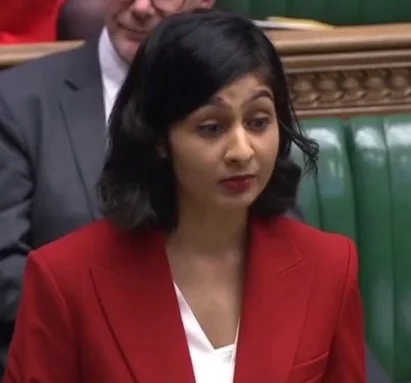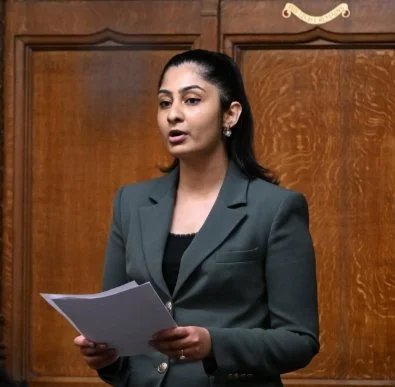Why Political Literacy Matters: Psychology, Democracy, and a Beginner’s Guide to UK Politics
Why do so many people vote the way they do?
Ask around, and you’ll hear a familiar story: “I vote this way because my parents always did,” or “I read it in the paper, so it must be right.” From a psychological perspective, these habits make sense. Humans are social learners, influenced by identity, tradition, and trust in authority. But from a democratic perspective, they raise an important question: how politically literate are we, really?
Political psychology has long shown that voters often rely on shortcuts: party loyalty, media framing, group identity. These heuristics reduce the mental load of complex politics but can also make citizens vulnerable to bias and manipulation. In other words, we often participate in democracy without fully understanding the rules of the game.
Political Literacy: The Missing Piece
Unlike political science, which can feel abstract, academic, and intimidating, political literacy is about the everyday skills and knowledge needed to navigate democracy. It is not about being told what to think, but about learning how to think politically:
Recognising bias and spin in the media.
Understanding how Parliament, parties, and elections work.
Knowing your rights and responsibilities as a citizen.
Seeing where ideologies like conservatism, liberalism, and socialism shape debate.
Learning practical tools to take action, from contacting MPs to reading a manifesto critically.
For many, especially those without a background in politics, this entry point is missing. Schools may touch on citizenship, and universities may teach political science, but everyday citizens are left to pick up fragments of knowledge from the media, often highly partisan, or from tradition and habit.
Political Identity and Emotion: Why Feelings Drive Politics
When we talk about politics, we often imagine rational debate, with citizens weighing up evidence and policies before making decisions. In reality, psychology shows that political behaviour is rarely a purely rational process. Instead, it is deeply shaped by emotion and identity.
Identity and Belonging
Voting patterns often reflect group identity more than policy knowledge. Many people vote as their parents did, or in line with the community they belong to. Political affiliation becomes part of who we are, much like nationality, religion, or football allegiance. This creates loyalty, but it can also make it harder to question whether our chosen “side” really represents our interests.
Emotion in Decision-Making
Campaigns are designed to tap into emotion. Fear can make security-focused messages more persuasive, hope can drive enthusiasm for reform, and anger can mobilise people to protest or demand change. These emotional appeals are not accidental: they are grounded in decades of research in political psychology and communication studies.
The Cost of Emotional Politics
Emotions are powerful, but they can also distort judgment. Fear can make citizens accept restrictions on liberty in the name of safety. Anger can fuel division and scapegoating. Loyalty to an identity group can keep people voting for policies that do not benefit them personally. Without political literacy, it becomes easy to mistake emotional satisfaction for informed choice.
How Political Literacy Helps
Developing political literacy does not mean suppressing emotion. Politics will always be emotional because it touches on values, identity, and community. Instead, literacy helps people recognise when emotions are being used to persuade or manipulate. It encourages reflection: am I reacting to a feeling, or making a decision based on evidence and values I have thought about?
By combining awareness of identity and emotion with knowledge of institutions and ideas, citizens become more resilient. They can still feel passionate about causes, but they are less likely to be swept away by slogans or spin.
A Course for Beginners (and Beyond)
Recently, a new online course, UK Political Literacy for Beginners, was launched to fill that gap. It takes the core ideas of political literacy and makes them accessible through short lessons, clear explanations, and interactive quizzes.
What makes it interesting from a psychological perspective is the way it frames learning: through stories, examples, and reflection questions that encourage learners to connect their own values and experiences to wider political ideas. This kind of reflective engagement is exactly what social and political psychology suggests builds resilience against bias, misinformation, and polarisation.
The course is deliberately non-partisan. It does not tell you which party to vote for or which ideology to embrace. Instead, it provides the scaffolding to understand politics on your own terms, to question assumptions, and to engage more confidently in debate and decision-making.
Who Might Benefit?
Students preparing for citizenship, politics, or history classes.
Parents and teenagers exploring politics together for the first time.
First-time voters who want to step into the polling booth with confidence.
Adults of any age who feel politics has always been “for someone else” and want an accessible entry point.
Try It Yourself
The first lesson is free, and it begins with one of the most distinctive features of the UK system: the unwritten but living constitution. From there, learners can unlock over 20 lessons covering everything from Parliament and ideologies to elections, media, rights, and citizen action.
Simply Put
From a psychological perspective, political literacy is not just about facts. It is about habits of thought. It is about recognising when you are responding to identity rather than evidence, when you are inside an echo chamber, or when you are letting tradition make your choices for you.
This course offers a valuable starting point, not to replace political psychology, but to complement it. By combining practical knowledge of the UK political system with reflection on values and critical thinking, it equips learners to participate in democracy with confidence.











